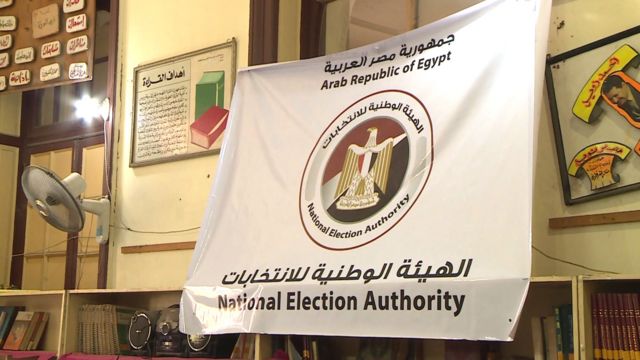Abdel Fattah al-Sisi made a law amendment to allow his brother, counsellor Ahmed al-Sisi, to keep the office as the head of the anti-money laundry and terrorism fund unit in the Central Bank of Egypt even after the age of retirement. As a justice, Ahmed al-Sisi has to retire in June 2023 after reaching 70 years old.
While Sisi said previously he hates clientelism and is mean, “and my family knows,” the law amendment passed in blackout represents a new case of nepotism to keep Sisi’s family embedded in the vital state apparatuses gathering power strands in his hands. Ahmed, 69 years, is the old brother of Abdel Fattah al-Sisi. Graduated from Shari’a and Law faculty of Al-Azhar University, Ahmed joined the justice system and now works as the deputy president of the cassation court, the second position in the regular judiciary in Egypt.
In September 2016, the prime minister appointed Ahmed for the anti-money laundry and terrorism fund unit in the CBE as a full-time job for the justice. Although the money laundry law limited the period of the unit’s head to 2 years, Ahmed was nominated again by the PM in September 2019 for the other two years. In June 2019, al-Sisi amended the anti-money laundry law to allow renewing the membership of the unit’s trustees unlimitedly. According to the amendment, Ahmed was nominated for the third period in 2020, which will end next month. The amendment also assigned to the president of the republic instead of the prime minister the authority to form the unit and allowed the head of the unit to be any justice with 15 years experience instead of being a working justice in the cassation court. The latest amendment, in particular, allows Ahmed to keep office even after retiring from his judicial work.
The anti-money laundry and terrorism fund unit, founded in 2002, receives reports about suspicious deals and transactions made by financial corporations and individuals and has investigation authority along with other agencies like the Administrative Control Authority and the National Security Apparatus of the police. It was initially assigned to combating money laundry, and, in May 2014, tackling terrorism was added to its assignments. The unit is responsible for reporting the public prosecution about money laundering, terrorism funds and other crimes and coordinating with the justice in making the necessary legal measures to track the money and revenues and freeze it. The unit also has the task of contacting foreign agencies to exchange data, information and statistics.
Ahmed is not the sole case of Sisi’s nepotism. The other and more prominent one is that of Sisi’s son, Mahmoud, who works as a colonel in the General Intelligence. Since Sisi took office, Mahmoud was recurrently promoted until becoming the second man in the powerful Octopus Egyptian agency. Mahmoud was said to be responsible for restructuring the Egyptian media since 2014 and played a crucial role in drawing the current political landscape through engineering the parliamentary elections and the constitutional referendum in 2019 that allowed Sisi to keep office until 2030. The other son of Sisi, Hassan, was employed in the General Intelligence against the agency regulations that prevent recruiting brothers. The older son of Sisi is Mustafa, who assumes a leading position in the Administrative Control Authority that has given broader authority since Sisi took office and is celebrated in media as Sisi’s tool to combat corruption. The father-in-law of Sisi’s daughter is General Khaled Fouda, who assumed the governor of South Sinai in 2011. Sisi refused to change Fouda despite recurrent complaints against him.





Recent Comments